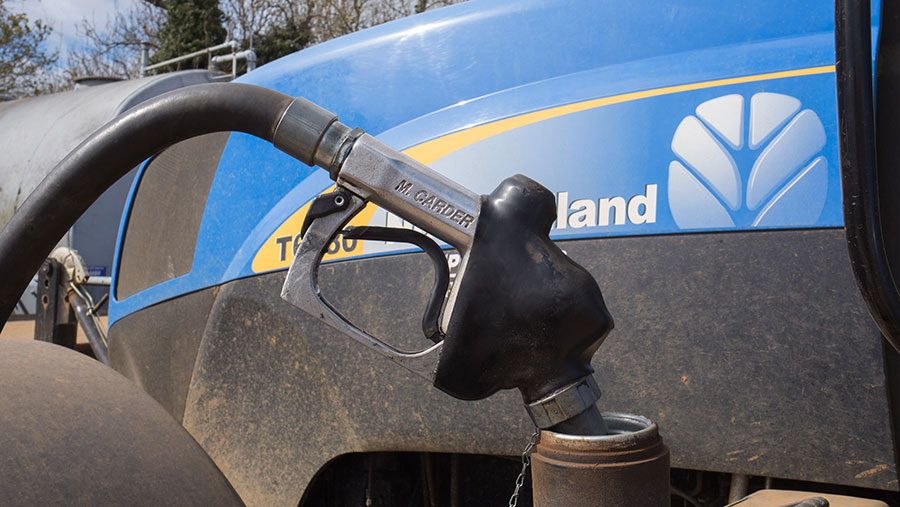Biofuels promise to reduce farmers’ carbon footprint
 © Tim Scrivener
© Tim Scrivener Farmers can turn diesel-guzzling tractors into greener machines with the help of a new type of fuel made from vegetable fats and oils.
Fuel supplier Crown Oil suggests farmers can reduce their carbon footprint by switching to a hydotreated vegetable oil (HVO) biofuel instead of using regular diesel in machinery.
The company is offering a second-generation premium biofuel which it says reduces greenhouse gas emissions by up to 90% when compared with regular diesel.
See also: Red diesel Q&A: HMRC rules untangled
It claims the product has a 10-year shelf life and also does not have the disadvantages seen with first-generation biodiesel, such as poor low-temperature performance and susceptibility to microbial attack.
However, the company says the fuel does have a premium over the cost of regular red diesel.
Matt Greensmith, managing director of Crown Oil, said with the government’s 2050 net-zero target for emissions, now is the perfect time to look at ways to reduce a business’ carbon footprint.
“We believe renewables sources are part of the solution to the current climate crisis, and we want to encourage businesses to switch to this versatile fuel.”
But while Crown Oil said there was no need to make any modifications to engines, the Agricultural Engineers Association urged farmers to consult vehicle manufacturers before use to confirm the compatibility of the fuel with the vehicle.
It acknowledged it was an “interesting initiative”, but it did not view the fuel as a “drop-in” replacement for regular diesel supplies.
Failure to check with the manufacturer first runs the risk of invalidating engine warranties, as the use of paraffinic diesel (which include HVO biofuel) is not validated for all vehicles, it said.
